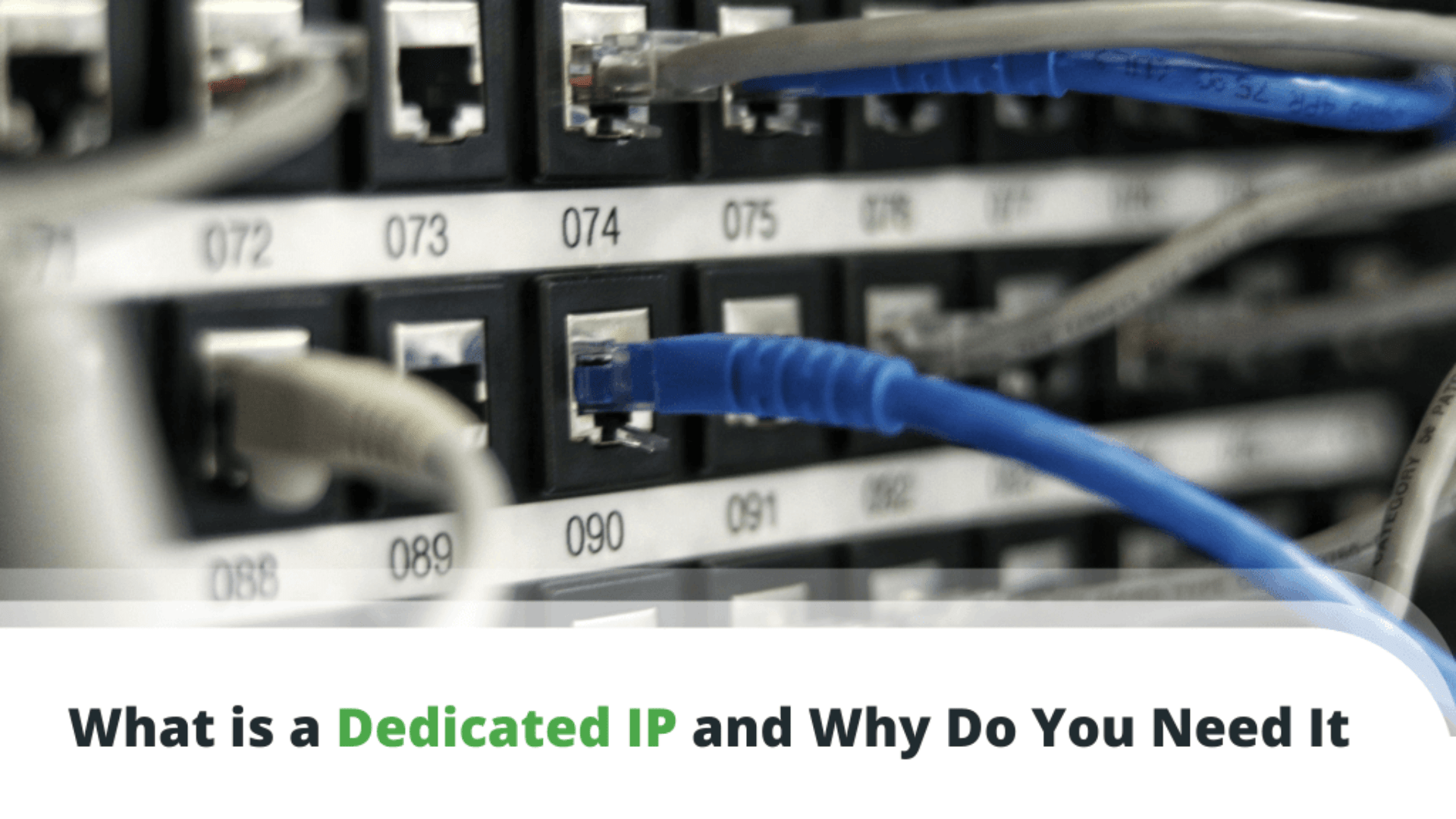
What is a Dedicated IP? When Do You Need One?
What is a Dedicated IP?
Dedicated IP addresses are those allotted to a single owner in the context of web hosting. It is the unique identifying address of that particular domain on the Internet.
A website can also be visited directly via its IP address if it has a dedicated IP address. This can be useful for testing or in situations when the Domain Name System (DNS)servers are down.
This addressing and routing technique has numerous benefits. Even with an increasing number of devices connected to the internet, IP addresses are running out.
Unlike shared IPs, which are used by multiple users on the same server, a dedicated IP ensures that only one entity controls and uses the address.
Example:
- Shared IP → Multiple websites share 192.168.1.10
- Dedicated IP → Dedicated IP address 192.168.1.100 is assigned to your website specifically
- How Does a Dedicated IP Work?
When you type a website address into your browser, your computer contacts a DNS server to find the corresponding IP address. If the website is on a shared hosting plan, multiple sites may be associated with the same IP. With a dedicated IP, your website has its own distinct address, so it can be accessed directly using the IP itself (e.g.,
When Do You Need a Dedicated IP?
In the following situations, a dedicated IP is required:
1. Installing an SSL Certificate: In the past, setting up an SSL certificate for your domain required a dedicated IP address. While most modern hosting providers support SSL on shared IPs , some legacy systems or specific applications still require a dedicated IP for SSL. It is now much simpler to obtain an SSL certificate without a specific IP address thanks to Server Name Identification (SNI) technology.
2. Improved Email Deliverability – If you’re sending a high volume of emails, a dedicated IP helps maintain a good sender reputation, reducing the chances of emails being marked as spam. Business communications and email marketing operations require dedicated IP addresses. The legitimacy of your company’s emails or the reputation of genuine email marketing efforts may suffer if shared IP addresses are vulnerable to spam or other unethical activity. Using dedicated IP address best practices, such as Sender Policy Framework (SPF), DomainKeys Identified Mail (DKIM), and others, can help avoid possible issues related to sharing an IP.
3. Remote Server Access – A dedicated IP allows you to access your website, server, or applications directly via IP instead of a domain name, which is useful for remote access or specific applications.
4. Avoiding IP Blacklisting – On shared hosting, if another website on the same IP is flagged for spam or malicious activity, it can affect your reputation. A dedicated IP protects you from these dangers.
5. Faster DNS Propagation – When switching web hosts, the DNS propagation process can take time. A dedicated IP ensures that visitors can access your site immediately without waiting for changes to propagate.
5. Running Certain Applications & Services – Some applications, FTP servers, or gaming servers require a dedicated IP to function properly.
6. Avoiding CAPTCHA and Rate Limiting – If many users share the same IP, some services may apply rate limits, causing frequent CAPTCHA verifications.A dedicated IP prevents this by ensuring only your traffic is associated with your address.
Running Specialized Applications or Services
- Some applications, APIs, and scripts require a static IP to function properly.
- This is common for:
- FTP servers
- Gaming servers
- VOIP (Voice over IP) services
- Remote desktop connections
- Certain enterprise-level applications
How to Get a Dedicated IP?
- Through Your Hosting Provider
* For an additional cost, many web hosting companies provide dedicated IP add-ons.
* Some VPS (Virtual Private Server) and dedicated hosting plans come with a dedicated IP by default.
3. Requesting One from Your ISP
If you need a dedicated IP for home use (e.g., for remote work), your Internet Service Provider (ISP) may offer a static IP option.
Although it’s not required for everyone, a dedicated IP offers greater control, security, and dependability. If your website operates fine on a shared IP and doesn’t require email sending, remote access, or specialized applications, you likely don’t need one. However, for businesses, developers, and high-volume email senders, a dedicated IP can be an excellent investment.
IP Addressing and Subnetting: A Quick Guide : What is a Dedicated IP? When Do You Need One?







